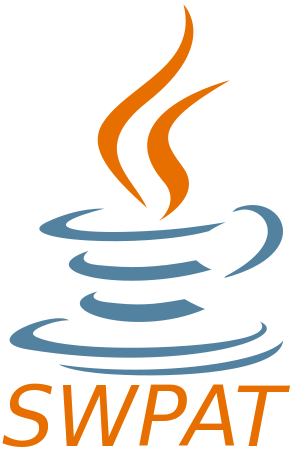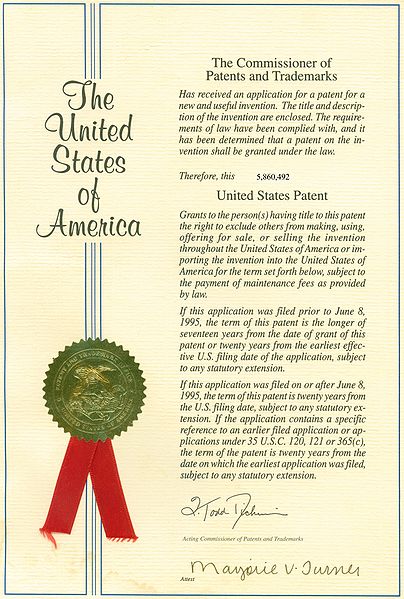01.06.13
Links 6/1/2013: Steam Extending Games Sale, CIA Whistleblower Blown
![]()
Contents
GNU/Linux
-
The Linux Setup – Miriam Ruiz, Debian Developer/Engineer
Another Debian developer! Miriam has a low-drama setup. She simply uses Debian to do what she needs to do. I find it interesting that she desktop hops a bit (she’s now working with GNOME), but at the same time, it’s very cool that she’s open to trying new desktop environments. In general, her setup seems to be evolving over time, which is inspiring to those of us who are a bit entrenched in our own workflows.
-
Desktop
-
How Windows 8 has opened up a Window for Linux World Domination
Earlier this year, Windows 8 was launched with great expectations. Microsoft banked on it to be a game-changer both for the tablet world as well as the desktop computer world. According to Redmond, the latest iteration of the most popular operating system in the world is a bridge between the tablet and the desktop. With a sleek, redesigned, and touch-friendly interface, Windows 8 was all set to become yet another milestone for Microsoft.
However, Steve Ballmer’s expectations were crushed when the early reviews didn’t turn out to be that good. Windows 8, along with its contentious Metro interface, was criticized for its lack of usability and confusing design. Many users posted videos of their friends and family having a hard time figuring out how to use the software. In fact, the dramatic departure from the familiar Start-button oriented user interface has irked many users.
-
The Dell XPS 13 Ubuntu Edition
Over the last year or so I’ve managed to divest myself of most of my Apple products in a project I call #noapple. The last remaining piece of Apple equipment I used frequently was an 11-inch MacBook Air (MBA) that I would dual boot with OS X and Ubuntu.
I was able to use it mainly booted to Ubuntu, but there were certain things that were a little bothersome. For example, the trackpad driver under Ubuntu wasn’t nearly as smooth as it was under OS X, and it was extremely sensitive, having little of what is called “palm detection”. Quite frequently, in the middle of typing something, the cursor would jump to some random part of the document when my palm barely brushed the trackpad.
-
-
Applications
-
Tomahawk music player
The way things have formed in our everyday computer usage experience right now, the overwhelming majority of users rely on the internet for both work and entertainment.
This has naturally transformed our music listening habits, making our local collection almost useless with on-line services offering everything you need and modern music players changing their approach because of this.
-
Instructionals/Technical
-
Xfce4-terminal 0.6.x keyboard shortcuts
-
The Basics of RPM – YUM Repositories [Linux 101]
-
Building LibreOffice with Clang on Ubuntu/Mint
-
Add Custom Items to System Settings Window in Ubuntu 12.10
-
Change Command Prompt
-
Install Openldap From Source And Configure Multi-Master Replication
-
Ninth Installment: Xmobar to the rescue!
-
16 of the Best Free Perl Books
-
-
Wine or Emulation
-
Games
-
Impressive 3D First Person Platformer ‘Deadlock’ Coming to Linux
-
Steam Extends Holiday Games Sale
Though Holiday 2012 has come and gone and most of the world has returned to work, Valve’s decided that Christmas isn’t over yet for Steam users.
The Steam Holiday Sale, originally running from December 20 to January 5has been extended to January 7. The last day of Steam sales, a date of sales reprisals, has been tweaked into “The Encore Weekend”, meaning that the most popular sales during the Holiday Sale will be reprised.
-
First Statistics On Steam Linux Usage
-
At the end of 2012, Steam users ditch Windows 7, Vista, and XP for Windows 8, OS X, and Ubuntu
Valve on Friday updated its Hardware & Software Survey for December 2012, and the news is very good for Microsoft. Yet the company wasn’t the only one to go home with a big win at the end of last year: even Canonical has good reason to celebrate.
-
At the end of 2012, Steam users ditch Windows 7, Vista, and XP for Windows 8, OS X, and Ubuntu
It seems that a Linux based Steam console will be out this year an engineer at Valve (Ben Krasnow) has confirmed!
I may be tempted to get it, would love to lazy on my sofa and play some games…that I already own and on Linux! One great thing about this is that we should get access to our existing libraries.
-
Steaming Ahead on GNU/Linux
-
Valve Console Locked For Linux, Report Suggests “SteamBox” Out 2013
-
Andy’s Super Great Park now on other distros!
Stuffomatic originally posted about their game Andy’s Super Great Park which was previously Windows and Ubuntu only, that is not the case any more they now support other distro’s by using a static build!
-
Linux based Steam console confirmed for this year!
It seems that a Linux based Steam console will be out this year an engineer at Valve (Ben Krasnow) has confirmed!
I may be tempted to get it, would love to lazy on my sofa and play some games…that I already own and on Linux! One great thing about this is that we should get access to our existing libraries.
The main problem I can see with this is that it will of course be controller based game play, so it means we will need a lot of developers to put in game pad support.
-
-
-
Desktop Environments/WMs
-
K Desktop Environment/KDE SC/Qt
-
Krita 2.7 Gets New Features, May Release This Summer
Krita developer Sven Langkamp has introduced 3 new features for Krita. These features are Freehand path tool, ability to paint any shape with the Krita brushes and QML export. These features or enhancements will be made available in Krita 2.7.
-
KDE SC 4.10 RC2 Released, Packages For OpenSUSE Available
-
C++11 Support In Qt 5.0
-
-
-
Distributions
-
Screenshots
-
Debian Family
-
Derivatives
-
Canonical/Ubuntu
-
Ubuntu Phone Spotted in a Bar, Supposedly
Ubuntu on phones is a bold move from Canonical and they will need a lot of money for the marketing campaign. They can also start by forgetting or taking pictures of their phones in a bar, somewhere.
This is a really old tactic and it’s not really effective anymore. Forgetting or spotting a phone in a bar might have been interesting a few years ago, but so many other companies did it that it’s no longer an effecting tool.
-
Android Central 121: CES preview, Ubuntu is back(ish)
-
Saturday’s Big Question: Is the Ubuntu phone for you?
-
Ubuntu Phone System Requirements
Ubuntu Phone OS has been unveiled and it has received pretty stellar response so far. If you didn’t see it in action yet, check out the video below.
-
Flavours and Variants
-
Netrunner 12.12 review – Starts low, ends high
Netrunner 12.12 is not a perfect distro. But it is so much better than what its live session can give you. In fact, this is probably the most critical part, because people often judge distributions and decide whether to use them based on the few minutes of live CD testing. And considering what Netrunner can offer you, you might almost be tempted to give it a pass. But do not.
-
-
-
-
-
-
Devices/Embedded
-
The CuBox Pro Is An Open-Source Computer That Measures 2-inches Cubed
If you’re a computer enthusiast and you’re not content with buying ready-to-use computers off the shelf and you don’t mind tinkering around the operating system, then open-source computer systems are probably the sort of device you’re after. Well if you are you might be interested to learn that SolidRun has taken the wraps off their latest offering, the CuBox Pro which is an upgrade over its predecessor and comes with 2GB of DDR3 RAM on board, which according to its creators makes it the world’s first ARM-based open source development platform to support 2GB of DDR3 RAM. The CuBox Pro will measure 2-inches cube and weighs 91grams and comes in either high polish or matte finish.
-
Phones
-
Android
-
Android Appalooza: Take note
Now that the new year is here, you might be feeling a little crazy trying to organize all of those resolutions in your head. I’ve always found that jotting down those thoughts helps with the process of putting goals into action. Fortunately, there are plenty of apps available in the Google Play Store that offer this sort of thing: a place for Android users to put down their streams of consciousness, store photos that haven’t been archived, or leave a mental note.
-
-
-
Leftovers
-
Google blocks Windows Phone from Maps, limits Gmail
-
Security
-
Defence/Police/Secrecy/Aggression
-
US Covert War in Yemen Receives Support from Saudi Air Force
In a feature story for The Times (London), journalist Iona Craig reports a Times investigation found “Saudi Arabian fighter jets joined the United States’ secret war in Yemen.” The support came in a year when the number of drone strikes in the Arabian Peninsula more than doubled and surpassed the number of drone strikes in Pakistan.
According to the Bureau of Investigative Journalism, there were 25 confirmed US operations in 2012 up from 13 confirmed operations in 2011. There were 58 possible US operations in 2012 up from 17 possible operations in 2011.
A US intelligence source reportedly claims, “Some of the so-called drone missions are actually Saudi air force missions.” Bruce Riedel, an ex-CIA officer, says, “We outsource this problem [of AQAP] to the Saudis, make it their problem. It is their problem.”
-
Dear Bill Kristol: More People Than You Thought Are Vulgar, Disgusting and Far-Left
-
Blowing the whistle on Obama’s America
Do the threats facing whistleblowers under Obama’s presidency mean Americans know less about what their government does?
-
The ‘war on terror’ – by design – can never end
As the Pentagon’s former top lawyer urges that the war be viewed as finite, the US moves in the opposite direction
-
Obama advisor who had decried ‘war on terror’ now defends drones
Harold Hongju Koh has become a symbol of national security policies that many feel are not significantly different than those of the Bush administration that he once criticized.
-
President Obama: Commute the sentence or pardon John Kiriakou
Kiriakou is an American hero. He refused to participate in torture, helped expose the program — including the systematic use of torture, renditions and secret black sites — and said on national television that torture was wrong. Instead of being rewarded for his courage and moral rectitude, he is currently the only person to be criminally prosecuted, and soon to be jailed, as a result of the Bush-era torture regime.
-
Ex-Officer Is First From C.I.A. to Face Prison for a Leak
Looking back, John C. Kiriakou admits he should have known better. But when the F.B.I. called him a year ago and invited him to stop by and “help us with a case,” he did not hesitate.
-
The Back Story to Kiriakou’s Imminent Guilty Plea
-
Obama Objects To Whistleblower Protections In NDAA, Surprising Key Backer
-
CIA Whistleblower John Kiriakou Inches From Jail So CIA Can Protect Torture Kingpin Thomas Fletcher
Former CIA whistleblower John Kiriakou is inches away from pleading away years of his life to jail while the former chief of the CIA headquarters-based RDI (Rendition, Detention, Interrogation) group is sitting pretty enjoying his retirement in Virginia.
-
Guantánamo: a place of sometimes-puzzling secrecy
When victims of al-Qaida attacks want to talk to reporters at Guantánamo, retired Navy Capt. Karen Loftus squires the so-called “victim family members” to Camp Justice’s press shed and introduces herself as their escort.
-
Torturers Roaming Free, John Kiriakou Tried for Espionage – The Latest in the War on Whistleblowers
-
-
Finance
-
Censorship
-
Privacy
-
“IF YOU’VE GOT NOTHING TO HIDE, YOU’VE GOT NOTHING TO FEAR”
Brooke speaks with George Washington University law professor Daniel Solove who says those types of arguments misunderstand privacy entirely.
-
New cybersecurity program designed to protect the power grid sparks fears that intelligence agencies will use it to spy on U.S. citizens
-
-
Civil Rights
-
Resolve to use, preserve core freedoms
Finally, trying to close off public and press access to government officials to stem leaks hasn’t worked in the past – and with the Internet, there’s even less reason to believe it would work today. Government secrecy is needed in some matters, and laws on treason and espionage already are on the books. Case in point: Army Pfc. Bradley Manning, facing trial in March for leaking huge amounts of secret documents to the global web organization WikiLeaks.
-
Rights and the ‘war on terror’
Congress and the president have yet to reestablish the proper balance between national security and civil liberties.
-






















 Content is available under CC-BY-SA
Content is available under CC-BY-SA